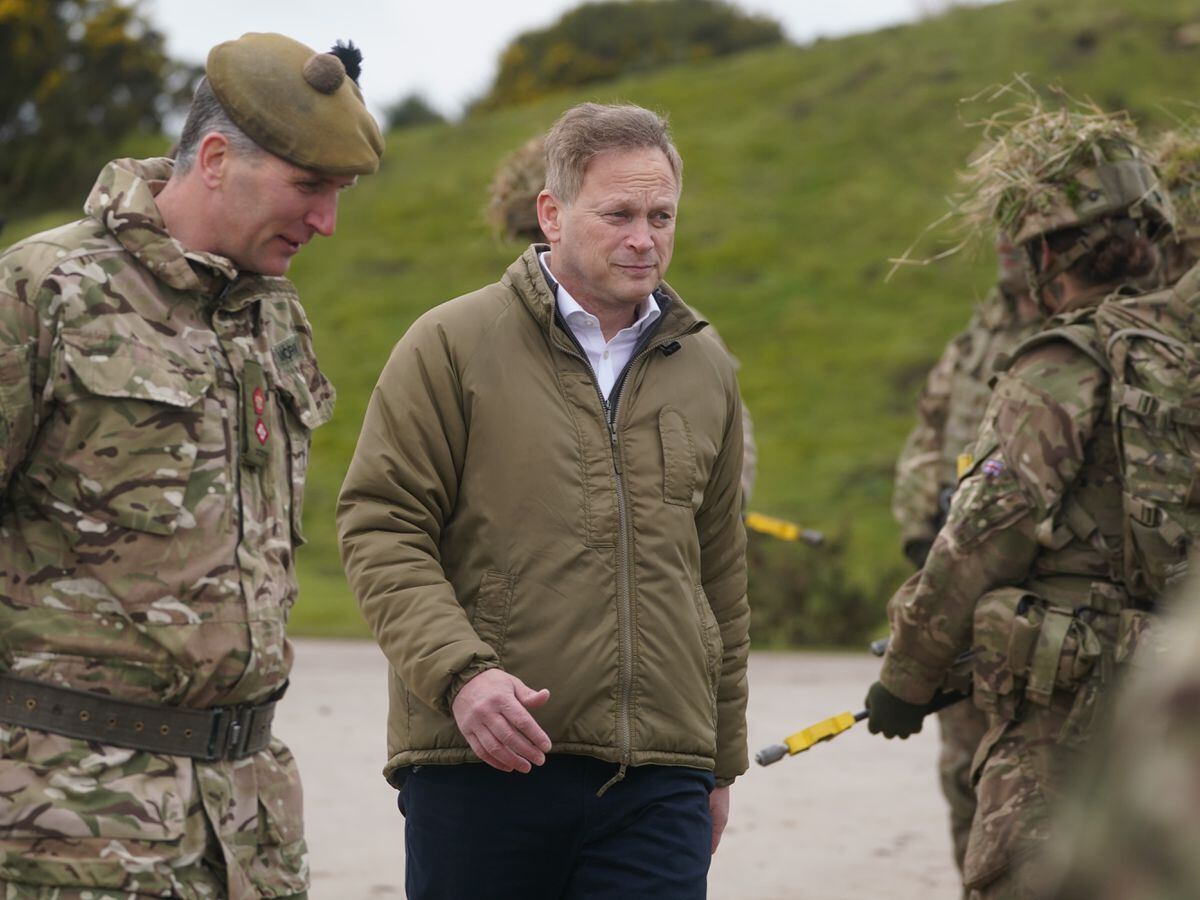


Grant Shapps was forced to abandon a trip to Ukraine’s southern city of Odesa because of a Russian missile threat.
The Defence Secretary had to abort the visit after he was warned by British intelligence that the Russians had become aware of his travel plans, according to a Sunday Times report confirmed by a source close to Mr Shapps.
As he flew to Poland from RAF Northolt last week, he was notified that an armoured convoy carrying Ukrainian President Volodymyr Zelensky and Greek Prime Minister Kyriakos Mitsotakis narrowly avoided a Russian missile strike while visiting the port city on March 6.
Five people were killed in the explosions, according to Ukrainian authorities.
The news raised the threat level to Mr Shapps’ safety from substantial to critical, according to the newspaper, which had access to the delegation.
Mr Shapps, travelling with chief of the defence staff Admiral Sir Tony Radakin and a small team of British officials, took an overnight train from Poland, arriving in Kyiv on March 7 for talks with Mr Zelensky and senior members of his wartime administration.
But the planned onward journey to Odesa was called off after an intelligence update revealed the Kremlin’s knowledge of it.
“Putin has shown himself to be reckless, ruthless and careless,” Mr Shapps, who instead travelled back to the UK via Poland, told the Sunday Times.
“The fact that he came perilously close to essentially assassinating two western leaders, it doesn’t matter whether that is deliberate or accidental. What the hell is he doing, and why the heck would the West allow him to do that kind of thing?”
A Ministry of Defence spokesperson said: “On a recent trip to Ukraine, the Defence Secretary did not make a planned visit to Odesa for security reasons.
“The UK continues to provide strong support for Ukraine and the Defence Secretary’s visit and engagements only underscored the importance of this support in the face of Putin’s aggression.”
It was the senior Tory’s second trip to Ukraine as Defence Secretary and his third since the outbreak of the war in February 2022.
It comes as Mr Zelensky faces waning enthusiasm in the West for supporting Kyiv.
European countries are struggling to find enough weapons and ammunition to send to Ukraine, and US help worth 60 billion dollars (£47 billon) is stalled over political differences in Washington.
Republicans loyal to Donald Trump have held up the funding package in Congress for months, and there is little hope of further US funding for Ukraine if the former president is re-elected.
On the battlefield, Ukrainian forces withdrew from the strategic eastern city of Avdiivka last month, where they had battled a fierce Russian assault for four months despite being heavily outnumbered and outgunned.
Mr Shapps said he hoped his visit would serve as a “wake-up call” to “push, persuade and even embarrass the rest of the world into action”.
Senior British military figures say western allies including the UK would need to ramp up the scale of investment by hundreds of billions of pounds to outproduce Russian President Vladimir Putin, who has raised defence spending by nearly 70%, according to the Sunday Times.
Mr Shapps this week called for military spending to be increased to 3% of gross domestic product (GDP), a measure of the size of the economy.
Rishi Sunak has said he wants to raise defence spending to 2.5% of GDP when economic circumstances allow.
When asked whether the Prime Minister should set a date for increasing defence spending before or at the election, the Defence Secretary told the paper: “Yes.”